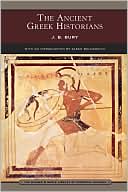Defying Hitler: A Memoir
Written in 1939 and unpublished until 2000, Sebastian Haffner’s memoir of the rise of Nazism in Germany offers a unique portrait of the lives of ordinary German citizens between the wars. Covering 1907 to 1933, his eyewitness account provides a portrait of a country in constant flux: from the rise of the First Corps, the right-wing voluntary military force set up in 1918 to suppress Communism and precursor to the Nazi storm troopers, to the Hitler Youth movement; from the apocalyptic year of...
Search in google:
In 1938, a non-Jewish upper-middle-class lawyer fled Germany for England and began writing an account of his daily life under Nazi rule (using the pen-name Sebastian Haffner). The manuscript was not discovered until after his death in 1999, and it was published in Germany in 2000. This first English-language edition, translated by Oliver Pretzel (the author's son), contains six additional chapters recently uncovered by archivists. Annotation c. Book News, Inc.,Portland, OR Reinhard Mohr Reviewers call it the book of the year; readers have made it a best-seller.
Defying Hitler\ A Memoir\ \ \ By Sebastian Haffner\ Translated by Oliver Pretzel\ \ FARRAR, STRAUS AND GIROUX\ Copyright © 2000 Sarah Haffner and Oliver Pretzel.\ Translation copyright © 2002 Oliver Pretzel.\ All rights reserved.\ ISBN: 0374161577\ \ \ \ \ Chapter One\ \ \ This is the story of a duel.\ It is a duel between two very unequal adversaries: an exceedingly powerful, formidable, and ruthless state and an insignificant, unknown private individual. The duel does not take place in what is commonly known as the sphere of politics; the individual is by no means a politician, still less a conspirator or an enemy of the state. Throughout, he finds himself very much on the defensive. He only wishes to preserve what he considers his integrity, his private life, and his personal honor. These are under constant attack by the government of the country he lives in, and by the most brutal, but often also clumsy, means.\ With fearful menace the state demands that the individual give up his friends, abandon his lovers, renounce his beliefs and assume new, prescribed ones. He must use a new form of greeting, eat and drink in ways he does not fancy, employ his leisure in occupations he abhors, make himself available for activities he despises, and deny his past and his individuality. For all this, he must constantly express extreme enthusiasm and gratitude.\ The individual is opposed to all of that, but he is ill prepared for the onslaught. He was not born a hero, still less a martyr. He is just an ordinary man with many weaknesses, having grown up in vulnerable rimes. He is nevertheless stubbornly antagonistic. So he enters into the duet—without enthusiasm, shrugging his shoulders, but with a quiet determination not to yield. He is, of course, much weaker than his opponent, but rather more agile. You will see him duck and weave, dodge his foe and dart back, evading crushing blows by a whisker. You will have to admit that, for someone who is neither a hero nor a martyr, he manages to put up a good fight. Finally, however, you will see him compelled to abandon the struggle or, if you will, transfer it to another plane.\ The state is the German Reich and I am the individual. Our fight may be interesting to watch, like any fight (indeed I hope it will be), but I am not recounting it just for entertainment. There is another purpose, closer to my heart.\ My private duel with the Third Reich is not an isolated encounter. Thousands, maybe hundreds of thousands of such duels, in which an individual tries to defend his integrity and his personal honor against a formidably hostile state, have been fought in Germany during the last six years. Each is waged in total isolation and our of public view. Many of the duelists, greater heroes or martyrs by nature, have taken the fight further than I—as far as the concentration camp or the gallows—and may perhaps be honored by a future monument. Others were defeated much earlier and are now silent grumblers in the ranks of SA reservists or NSV Blockwarts (block wardens).\ One might well consider my case as typical. From it, you can easily judge the chances for mankind in Germany today. You will see that they are pretty slim. They need not have been quite so hopeless if the outside world had intervened. It is still in the world's interest, I believe, for these chances to be improved. It is too late to avoid a war, but it might shorten the war by a year or two. Those Germans of goodwill who are fighting to defend their private peace and their private liberty are fighting, without knowing it, for the peace and liberty of the whole world.\ Thus it still seems worthwhile to me to draw the attention of the world to the unknown events inside Germany.\ The book will tell a story, not preach a sermon; but it has a moral that, like that "other and greater theme" in Elgar's Enigma Variations, silently "runs through and over the whole." I will not mind if, after reading the book, you forget all the adventures and incidents that I recount; but I would be pleased if you did not forget the underlying moral.\ \ \ Chapter Two\ \ \ Even before the totalitarian state advanced on me with threats and challenges and taught me what it meant to experience history in person, I had already lived through a fair number of "historical events." All Europeans of the present generation can make that claim, and none more so than the Germans.\ Those events have naturally left their mark on me, as on all my compatriots. If one fails to appreciate this, one will not be able to understand what happened later. There is, however, an important difference between what happened before 1933 and what came afterward. We watched the earlier events unfold. They occupied and excited us, sometimes they even killed one or another of us or ruined him; but they did not confront us with ultimate decisions of conscience. Our innermost being remained untouched. We gained experience, acquired convictions, but remained basically the same people. However, no one who has, willingly or reluctantly, been caught up in the machine of the Third Reich can honestly say that of himself.\ Clearly, historical events have varying degrees of intensity. Some may almost fail to impinge on true reality, that is, on the central, most personal part of a person's life. Others can wreak such havoc there that nothing is left standing. The Usual way in which history is written fails to reveal this. "1890: Wilhelm II dismisses Bismarck." Certainly a key event in German history, but scarcely an event at all in the biography of any German outside its small circle of protagonists. Life went on as before. No family was torn apart, no friendship broke up, no one fled their country. Not even a rendezvous was missed or an opera performance canceled. Those in love, whether happily or not, remained so; the poor remained poor, and the rich rich. Now compare that with "1933: Hindenburg sends for Hitler." An earthquake shatters 66 million lives.\ Official, academic history has, as I said, nothing to tell us about the differences in intensity of historical occurrences. To learn about that, you must read biographies, not those of statesmen but the all-too-rare ones of unknown individuals. There you will see that one historical event passes over the private (real) lives of people like a cloud over a lake. Nothing stirs, there is only a fleeting shadow. Another event whips up the lake as in a thunderstorm. For a while it is scarcely recognizable. A third may, perhaps, drain the lake completely.\ I believe history is misunderstood if this aspect is forgotten (and it usually is forgotten). So before I reach my proper theme, let me tell you my version of twenty years of German history—the history of Germany as a part of my private story. It will not take long, and it will make what follows easier to understand. Besides, it may help us get to know each other a little better.\ \ \ Chapter Three\ \ \ My conscious life started with the outbreak of the Great War. It found me, like most Europeans, on my summer vacation. Indeed, the worst thing the war did to me was to spoil that vacation. With what merciful suddenness the last war began, compared with the slow, tortured approach of the one that is now imminent! On August 1, 1914, we had just decided not to take the matter very seriously, and to continue our vacation. We were on a farm estate in eastern Pomerania, lost to the world, in the midst of woods that I, as a small boy, knew and loved like nothing else in the world. The return from those woods to town, which usually took place in the middle of August, was the saddest and most unbearable event of the year for me; comparable, perhaps, only to the dismantling and burning of the Christmas tree after the New Year.\ On August I that return was still two weeks away. A few days earlier, some disquieting things had happened. The newspaper contained something never seen before: headlines. My father read it longer than usual, looked very worried, and cursed the Austrians when he put it down. On one occasion the head-\ (Continues...) \ \ \ Excerpted from Defying Hitler by Sebastian Haffner. Copyright © 2000 by Sarah Haffner and Oliver Pretzel. Excerpted by permission. All rights reserved. No part of this excerpt may be reproduced or reprinted without permission in writing from the publisher. \ \ \ \
\ From the Publisher“An astonishing memoir...vividly convey[s] the texture of life under an emerging totalitarian regime... [a] masterpiece.” —The New York Times Book Review\ “A masterpiece...has more to say about the enduring enigma of Hitler’s Reich than almost anything else in the voluminous modern literature on the subject.” —Commentary\ “Haffner is like the guide of Dante’s Inferno, tracing the slow descent into Nazism in intimate detail...Compelling... Fresh, immediate, and wonderfully personal...An absorbing book.” —Milwaukee Journal Sentinel\ “The prophetic insights of a fairly young man...help us understand the plight, as Haffner refers to it, of the non-Nazi German.” —The Denver Post\ \ \ \ \ \ Max HastingsA short, stabbing, brilliant book . . . It is important, first, as evidence of what one intelligent German knew in the 1930s about the unspeakable nature of Nazism, at a time when the overwhelming majority of his countrymen claim to have know nothing at all. And, second, for its rare capacity to reawaken anger about those who made the Nazis possible. \ —The Sunday Telegraph\ \ \ Richard OveryUnsurpassable . . . Wonderfully written . . . There is an exceptional literary power in what he writes . . . Haffner's brief autobiography is replete with historical insights, expressed with a lightness of touch and a literary verve. \ —Literary Review\ \ \ \ \ Richard KammerlingsThe most important book of the year. \ —Frankfurter Allgemeine Zeitung\ \ \ \ \ Heinrich JaenickeSebastian Haffner was Germany's political conscience, but it is only now that we can read how he experienced the Nazi terror himself - that is a memoir of frightening relavance today. \ —Stern\ \ \ \ \ Volker UllrichAn electrifying discovery. \ —Die Zeit\ \ \ \ \ Reinhard MohrReviewers call it the book of the year; readers have made it a best-seller.\ \ \ \ \ Publishers WeeklyA sample historical headline: "1890: Wilhelm II dismisses Bismarck." No one's life was disrupted, writes Haffner. "No family was torn apart, no friendship broken up, no one fled their country." Compare that with "1933: Hindenburg sends for Hitler." In this case, "[a]n earthquake shatters 66 million lives." Thus begins a vivid examination of just how Hitler's ascension affected an ordinary German, a young lawyer with no strong political views, whose career and life were disrupted by the Nazis. Written in 1939, this memoir was not published until 2000, when Pretzel, Haffner's son, brought it out in Germany, where it was a bestseller. Haffner alternates political analysis with accounts of how the rise of the Nazis in the 1920s and early '30s affected his attempts to build a career, keep friendships alive and kindle romantic liaisons. His analysis of the failure of post-WWI German society to create stability is familiar, but Haffner writes with a close familiarity that makes the old new again. And his description of the way the Nazis invaded people's daily lives shines. It becomes clear how many "good Germans" struggled against impossible odds to keep their personal lives politics-free. Unfortunately, Haffner's manuscript ends with 1933 (Pretzel covers the rest of Haffner's life, beginning with immigration to England, in a brief afterword). This intimate self-portrait stands with Victor Klemperer's two-part memoir, I Will Bear Witness, as evidence that the personal can offer insight into the political tragedy of Nazism. (June) Copyright 2002 Cahners Business Information.\ \ \ \ \ Kirkus ReviewsA remarkable account, dug out of a drawer, about daily life in Germany during the rise of Nazism. Haffner-a journalist who left Germany in 1938, married a Jewish refugee in London, and enjoyed a long career as a foreign correspondent and columnist-offers a surprising view of the German character: "As a nation," he writes, "Germany leads a double life because almost every German leads a double life," one summarized by the Prussian motto "Hard outside, soft inside." This dichotomy, one supposes, helps explain George Steiner's famous conundrum: how it could be that concentration camp guards could conduct their business without emotion but weep over Beethoven at night. It certainly explains the German penchant for irony, why dour civil servants such as Haffner's long-suffering father could be secret lovers of literature, and why law-abiding citizens could welcome a murderous regime but insist that they knew nothing of its deeds. In contemplative pages reminiscent of the best of Elias Canetti, Haffner ponders other German qualities that, he avers, led to Hitler's rise: a love of sports and therefore of winners ("We felt very important and patriotic, and ran races for the fatherland"), a fondness for the theater and the carnival ("While Hitler wanted to bring about the millennium by a massacre of all the Jews, there was a certain Lamberty in Thuringia who wanted to do it by folk dancing, singing, and frolicking"), and a fatalistic worldview that assumed the inevitability of evil ("If it makes no difference anyway and everything is lost, then why not be bitterly, angrily cynical and join the devils oneself?"). In that climate, resistance to Hitler came slowly and sporadically, expressed mostlyby a world-weary clenching of the teeth-which, of course, was completely ineffectual, and which made true acts of resistance seem rare and strange. A bestseller in Germany, and deserving a wide readership elsewhere in the world.\ \







